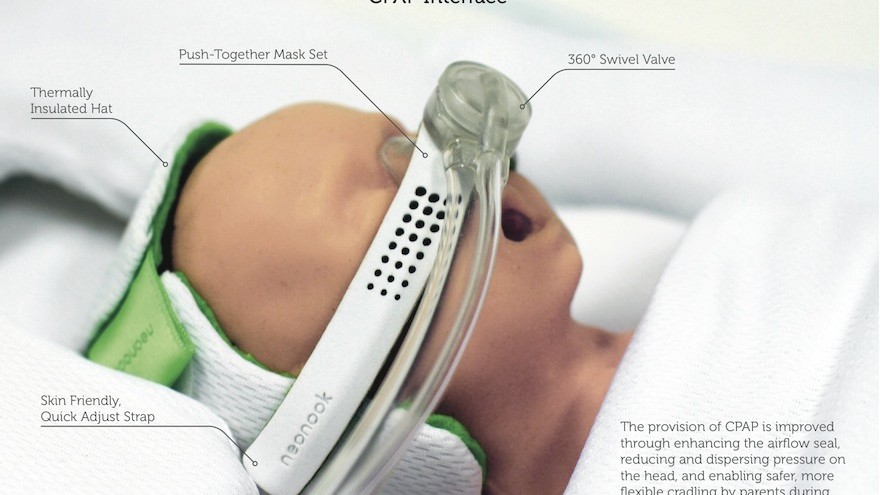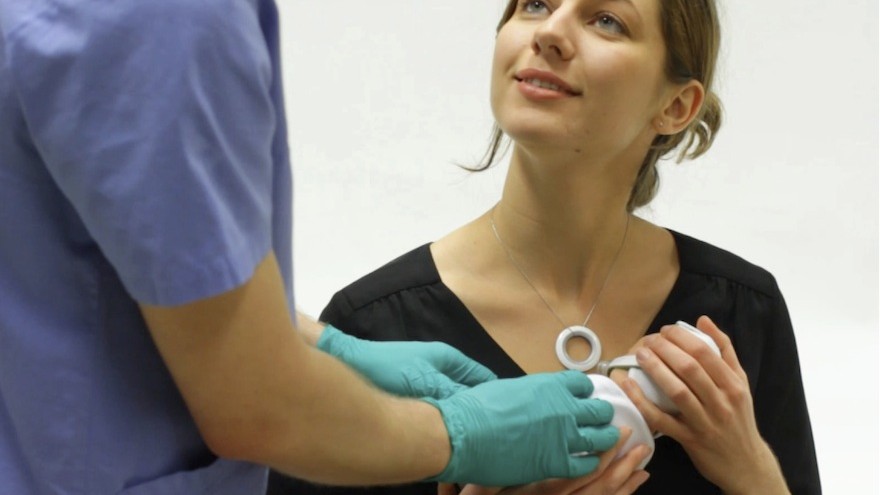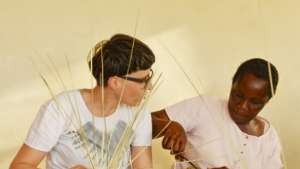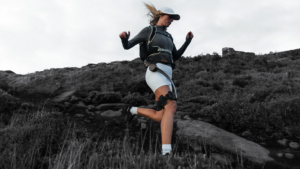From the Series
Two industrial designers and Master’s students at the Umeå Institute of Design in Sweden have come up with an improved system of neonatal care for premature babies that replicates the sensory stimulation of the womb.
For their NeoNook Neonatal Infant Care system, Alastair Warren and David Dawod redesigned the ventilator’s breathing mask to require minimal adjustment and be more comfortable for infants. They also created a cushioning structure for the baby to lie on, which replicates the womb’s conditions by responding to data collected from a sensor pendant that the mother wears around her neck. The entire system fits inside an existing incubator.
Warren and Dawod, MFA students in advanced product design, set out to correct major flaws with the existing technology for Continuous Positive Airway Pressure (CPAP) treatment. This is the standard process whereby breathing tubes are attached to infants’ nostrils for assisted respiration, which can be invasive and cause facial damage.
Warren and Dawod’s device addresses the high stress levels that can exacerbate an infant’s respiratory troubles and slow recovery time. Their solution artificially recreates the restful conditions of the womb in order to minimise stress. A small biofeedback device, shaped as a pendant worn around the mother’s neck, transmits her breathing rhythms, heartbeat sounds, body temperature and even spoken words to the baby. Simulating these comforting touches can speed recovery, reduce stress and streamline care.
However, these changes required not just redesigning the specific equipment, but also holistically rethinking the entire care environment.
The designers interviewed medical professionals, specialists and the caregivers who would be operating the device.
Their priority was to focus on ways to stabilise the infant in order to facilitate “kangaroo care”. They also introduced innovations such as a more efficient form for nurses to work with and a monitor that uses babies’ skin conductivity to measure stress.
The entire system has effectively been redesigned from the inside out to provide a beneficial environment for development. The designers’ holistic approach takes into account all aspects of care, including the experience for nurses, parents and even staff tasked with machine maintenance.
Dawod, who is Swedish, and Warren, a New Zealander, won a 2014 Red Dot Best of the Best Award and a Bronze in the International Design Excellence Awards category for Medical and Scientific design. Their design was also a student runner-up in the equipment category of Core77's awards.
NeoNook has been made with implementation in mind. It has yet to be put into trials, but if successful, it could minimise the stress incubated babies endure after delivery.










